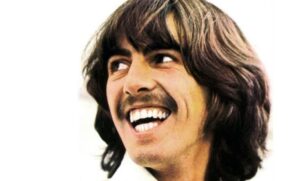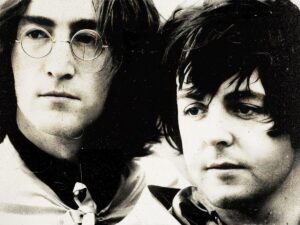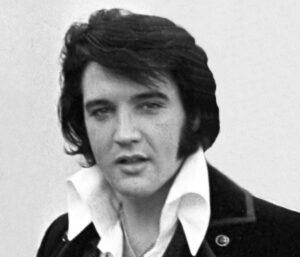As with other things in life, music is made up of an innumerable amount of winning combos. Jagger and Richards, the bass guitar and drums, George Michael and Andrew Ridgeley. You get the picture. In many ways, music is comprised of symbiosis, and without it, the art form just wouldn’t be the same — imagine the Beatles without either Lennon or McCartney. It is certain that they wouldn’t have had the monumental artistic output that they did without one of their definitive songwriting duo.
This sentiment can also be attributed to instruments and their players. To think of Ray Manzarek of the Doors without a keyboard is like imagining New York without the Statue of Liberty. Furthermore, if you were to imagine My Bloody Valentine’s Kevin Shields without a Fender Jazzmaster, his majesty as the premier sonic architect of guitar music would be significantly reduced.
However, there is another winning combo between instrument and player that one would wager is the ultimate example of this joyful joinery. Pink Floyd’s David Gilmour and his 1969 black Fender Stratocaster, dubbed ‘The Black Strat’. This classic duo wrote some of the band’s most enduring pieces, and consequently, some of the best-beloved songs of all time.
These tracks include ‘Comfortably Numb’, ‘Money’ and ‘Shine On You Crazy Diamond’ to name just three. In fact, the iconic four-note opener on the latter is said by Gilmour to have fallen “out of that guitar one day”. He also used the iconic six-string across his cerebral solo career, playing it on the albums About Face and On An Island.
Gilmour picked his iconic weapon of choice up in 1970 when on tour in America. After all of the band’s gear was stolen after a show in New Orleans, he bought it from the landmark store Manny’s in New York. He revealed that “it’s been on more Pink Floyd tracks” than any other guitar. Showing the dazzling, ever-present affect the guitar had on Pink Floyd’s career, Gilmour also explained that “in one way or another it’s probably on most tracks from 1970 to the middle ’80s”.
Given that Gilmour was such an experimental artist, and somewhat of a perfectionist, it can come as no surprise that he added various modifications to the guitar over the years. These included installing an XLR connector to eliminate the hum coming from his Dallas Arbiter Fuzz Face pedal, which was quickly removed, alongside numerous different pickups, necks and tremolo systems. It is said that the only thing Gilmour didn’t change on the guitar was the colour.
In the late ’80s, after Roger Waters departed from the British prog icons, Gilmour briefly ditched ‘The Black Strat’ for three modded Candy Apple Red Stratocasters, and for a time, it found itself residing in the Hard Rock Cafe in Dallas, Texas. Although, roughly a decade later, the guitar was returned to its rightful home. But, as it had not been properly looked after, and not stored in a glass case as one would have expected, it sustained significant damage, and many of its parts were stolen. But it wasn’t finished just yet.
Gilmour would also play ‘The Black Strat’ on Pink Floyd’s final outing, 2014’s The Endless River, and in 2015 on his album Rattle That Lock. Fast forward to 2019 though, and Gilmour knew the journey with his legendary companion was finally up. Only this time, there was no going back.
In a bold move, Gilmour decided to auction off 128 of his most iconic and best-beloved guitars. Gilmour told the world he wanted to “give joy” to other people, and fight climate change at the same time. He explained that “These guitars have been very good to me” and that “they’re my friends. They have given me lots of music.”
However: “I just think it’s time that they went off and served someone else. I have had my time with them. And of course, the money that they will raise will do an enormous amount of good in the world, and that is my intention.”
Sold through the auction house Christie’s in New York, on June 20, 2019, ‘The Black Strat’ became the most expensive guitar of all time. It made a whopping $3,975,000 (£3.13 m). It wouldn’t hold the record for long though. Exactly a year later, on June 20, 2020, Kurt Cobain’s equally as iconic acoustic, the 1959 Martin D-18E that he played on 1994’s MTV Unplugged in New York sold for over five million dollars.
All proceeds from Gilmour’s mammoth guitar auction were donated to the charity ClientEarth. The Pink Floyd maestro weighed in on the climate crisis: “the global climate crisis is the greatest challenge that humanity will ever face, and we are within a few years of the effects of global warming being irreversible”.
He continued: “As Greta Thunberg, the 16-year-old Swedish climate activist said in a speech earlier this year ‘Either we choose to go on as a civilisation, or we don’t’. The choice really is that simple, and I hope that the sale of these guitars will help ClientEarth in their cause to use the law to bring about real change.” He concluded: “We need a civilised world that goes on for all our grandchildren and beyond in which these guitars can be played, and songs can be sung.”
There we have it. There really is no one quite like David Gilmour. Master of the six-string, protector of the environment and saviour of music for generations to come. Who knows, maybe one day we’ll see more of the traditional “rock gods” lending a hand to help alleviate the impending environmental doom, rather than getting their knickers in a twist about something as trivial as a vaccine.
Listen to David Gilmour talk about ‘The Black Strat’, below.



